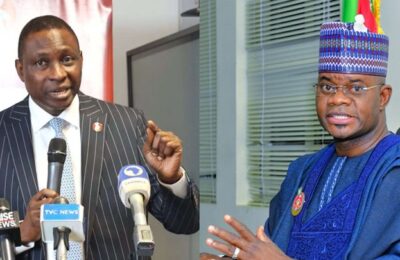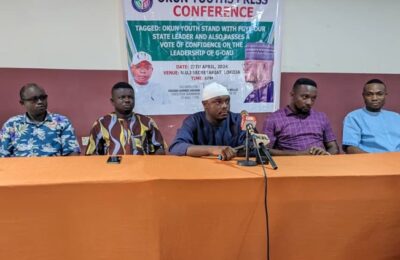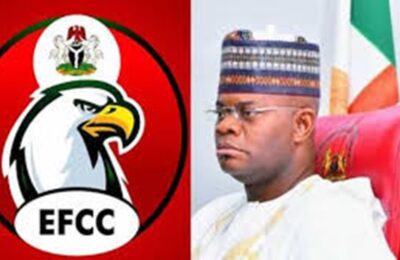“Silence is a crime in an unjust society; See something, say something……”
Primarily, we all have the capacity to raise the flag against any act which in our judgment can pose immediate or future danger to our collective existence. Let me say that as kids growing up we acted in capacities of whistle-blowers when we report little infractions committed by our siblings, irrespective of the intent.
In the same way a referee blows the whistle in a football match, to record an illegal tackle or what they call infringement and he applies necessary sanction to the offender.
Secondly, we must hate what is wrong to be able to report it. Some people are not doing wrong only because they don’t have the opportunity yet to commit the wrong, therefore when they see someone else do it, it matters less to them. The fight against corruption is collective and never for ICPC/EFCC or even Gov Bello’s Administration.
Corruption is older than those institutions and therefore smarter, that is why the anti-graft agencies need to combine forces with the public to be able to defeat corruption and its many debilitating effects. The first person to notice the threat of misconduct, mismanagement and corruption within a public or private organisation is usually who works in or closely with the organisation in question.
Whistle blowing is recognised internationally as a veritable tool in the fight against corruption. A whistle blower is a person who exposes misconduct, alleged dishonest or illegal activity occurring in an organisation. The alleged misconduct maybe classified in many ways; for example, a violation of a law, rule, regulation and/or a direct threat to public interest, such as fraud or corruption.
Whistleblowers may make their allegation internally (for example, to other people within the accused organisation) or externally (to regulators, law enforcement agencies, media or to group concerned with the issues). The term whistle-blower comes from the whistle a referee uses to indicate an illegal or foul play. Most whistle-blowers are internal whistle-blowers who report misconduct on a fellow employee or superior within their organisation.
The (NCAA) Nigeria Civil Aviation Authority bizarre purchase of two bullet-proof BMW luxury cars at a whooping N225 million for the then Minister of Aviation leaked by Nicholas Edwards and the former Governor of Central Bank of Nigeria, Sanusi Lamido Sanusi who also blew the whistle against the NNPC for non-remittance of around $20 billion oil revenue are example of whistle-blowing in Nigeria.
However, the cases of whistle-blowing in the state is proportionately nothing to the wide scale level of corruption. It is pertinent to note that, whistle-blowing help to expose corruption, reduces the chance of legal claims against organization, detects and deters wrongdoing, and gets to managers/policy makers the information they need to make decisions and control risk.
The primary role of whistle-blower is providing information and being an expert witness (where necessary), being the first chain in crime detection in an organization which uncover fraud and corruption the whistle-blower provides evidence necessary to give lead to law enforcement and other relevant agencies during investigation. Most importantly, whistle-blowing provides early warning that helps in detecting crimes before they are committed.
However, many potential or would-be whistleblowers fear the victimization syndrome and therefore do not report crime perpetrated especially by their superiors even though there are extant laws which protect whistleblowers. Section 23 (1-2) of the Corrupt Practices and other related Offences Act, 2000 provides for duty to report bribery transaction by public officers, while Section 64 provides for the protection of whistleblowers. The Freedom of Information Act also has potential to facilitate and protect whistle blowers. The most recent development is the passage of the Whistle-blower Protection Bill by the National Assembly, which provides for the protection of information and informants.
More so, Section 10(1a-b) and (2a-b) of the Money Laundering Prohibition Act, 2004 also provides that Financial Institutions or designated Non-Financial Institutions and private individual to report any transaction above N5,000,000.00 and N1,000,000.00 for Corporate and Individual respectively, this exposes questionable transactions and reduces money laundering.
United Nations Convention Against Corruption Article 33 (Protection of Reporting Persons) states that: “Each State Party shall consider incorporating into its domestic legal system appropriate measures to provide protection against any unjustified treatment for any person who reports in good faith and on reasonable grounds to the competent authorities any facts concerning offences established in accordance with this convention”. Nigeria as a signatory (State Party) must uphold its commitment to the declaration.
The key to successful whistle blowing is to report/petition anonymously which is acceptable by anti-graft agencies in Nigeria; this allows informants to report misconduct without fear of retribution.
Lastly, to effectively combat corruption in Nigeria public servants, civil society organizations, and the general public must be ready to expose misconduct to relevant agencies.
– Abbas Yahaya




